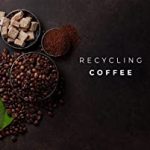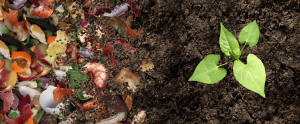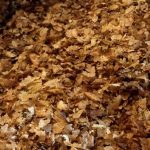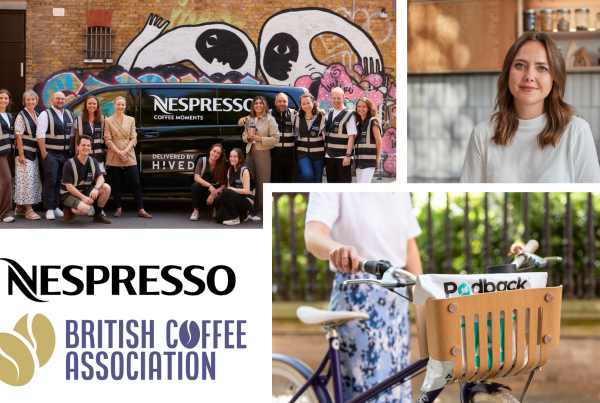Recycling can be a minefield of ever-changing and inconsistent rules, so it’s not surprising that so many people struggle to know what can and can’t be recycled. We’re here to help bust some better-known and lesser-known coffee recycling myths…
Myth 1: Products made of more than one type of material, such as coffee cups, can’t be recycled.
In the early days of recycling the technology available was very limited, only a few materials could easily be recycled. Thankfully, recycling today is much more sophisticated than in the past, which means that items such as coffee cups, which are often made of more than one type of material, are in fact recyclable.
Although they cannot be recycled in mainstream waste management systems, coffee cups, even those with polyethylene liners, can be widely recycled across the UK. Costa Coffee became the first coffee chain to turn their stores into recycling points for cups. Regardless of what brand of cup it is, they will recycle all the cups they collect.
Myth 2: Only big industrial coffee producers can recycle their waste coffee grounds.
 Bio-bean, estimates that around half a million tonnes of waste coffee grounds are produced in the UK every year. Thankfully, bio-bean have found an innovative way to recycle waste coffee grounds and turn them into advanced biofuels and biochemical products.
Bio-bean, estimates that around half a million tonnes of waste coffee grounds are produced in the UK every year. Thankfully, bio-bean have found an innovative way to recycle waste coffee grounds and turn them into advanced biofuels and biochemical products.
But contrary to popular belief, it’s not only big industrial coffee producers who make use of their innovations, smaller businesses, dedicated to sustainability can also benefit. Bio-bean collects waste coffee grounds at every scale, from independent cafés, universities and small businesses to major coffee chains and instant coffee factories and turns them into sustainable fuel. Learn More
Myth 3: ‘Compostable’ cups and pods mean I can throw them on the compost heap and they’ll soon biodegrade.

To describe a product as ‘compostable’, it must break down in under 12 weeks in composting conditions. But before you start throwing your coffee waste into the flowerbeds, bear in mind that it will only break down given the right conditions. That is usually only possible at an industrial composting facility under hot conditions, with the correct levels of moisture.
Whilst some ‘home compostable’ products, such as coffee pods, are available – great news for the environment as well as your garden – it is important to note the difference from other products labelled ‘compostable’. Only a few industrial compositing units in the UK will accept compostable products, such as compostable paper cups, and even then, the process is still a complex one.
Myth 4: Coffee chaff (the coffee bean husk which comes off during the roasting process) can be composted but not recycled.
 Coffee chaff is a waste product of the roasting process that forms when coffee beans are roasted and their protective skin, also known as the husk, is removed as chaff.
Coffee chaff is a waste product of the roasting process that forms when coffee beans are roasted and their protective skin, also known as the husk, is removed as chaff.
Rich in nitrogen, coffee chaff is ideal for composting as it enriches soil and is 100% natural. However, if you don’t have any use for it as a composting agent, it can also be recycled to great effect.
Coffee chaff can be recycled and used for animal bedding, especially chickens, rabbits or other domestic pets. It’s very easy to handle, smells great (!) and is a nice soft alternative to timber-based beddings.
Myth 5: Most coffee pods can’t be recycled and end up in landfill.
Thanks to Podback, now anyone anywhere in the country can recycle their pods through one simple service – the first of its kind in the UK. The biggest names in coffee pod systems, Nespresso, NESCAFÉ Dolce Gusto, and Tassimo came together to create Podback, making recycling coffee pods as easy as making pod coffee.
Myth 6: Jute coffee bags can’t be sent back to their countries of origin to be reused, so they go to waste.
Although it’s difficult to re-use jute coffee bags (used to transport coffee from countries where the coffee is grown to the UK) for the same purpose, they are actually widely recycled and re-used, for example being turned into environmentally friendly carpet underlay.
Lincoln and York is just one of the many coffee companies in the UK that recycle 100% of the jute sacks that arrive carrying fresh coffee beans into sustainable carpet underlay.




